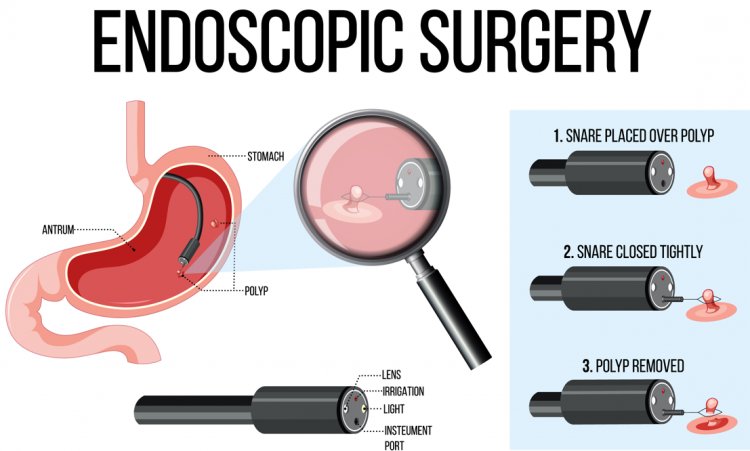Confronting Polyps: Detection, Diagnosis, and Decisions
Confronting Polyps: Detection, Diagnosis, and Decisions" is an informative article discussing the types, causes, diagnosis, and treatment options for polyps. It covers various types of polyps like colorectal, nasal, uterine, and gastric polyps, explores potential causes including genetic factors and lifestyle choices, outlines diagnostic methods such as colonoscopy and nasal endoscopy, and explains treatment options like polypectomy, medications, and surgical excision. The article emphasizes the importance of early detection and proactive management for polyps to ensure optimal health outcomes.

Types of Polyps
Polyps are abnormal growths that can develop in various tissues throughout the body. Understanding their types is crucial:
Colorectal Polyps
These growths occur in the colon or rectum and are frequently discovered during routine screenings such as colonoscopies. They encompass several types, including adenomatous polyps, serrated polyps, and inflammatory polyps.
Nasal Polyps
Noncancerous growths in the nasal passages or sinuses, leading to symptoms like nasal congestion, reduced sense of smell, and facial pressure.
Uterine Polyps
Found in the uterus lining, usually benign but can cause abnormal bleeding, infertility, or pregnancy complications.
Gastric Polyps
Form in the stomach lining and can be classified into various subtypes based on histological features.
Causes of Polyps
While the exact causes remain unclear, several factors contribute to their formation:
- Genetic Factors
- Chronic Inflammation
- Diet and Lifestyle Choices
Diagnosis
Diagnosing polyps involves medical history review, physical examination, and procedures such as colonoscopy and nasal endoscopy.
- Colonoscopy: Direct visualization and removal of colorectal polyps.
- Nasal Endoscopy: Examination of nasal passages and sinuses.
- Imaging Studies: Ultrasound, CT scans, or MRI scans for other organs.
Treatment Options
Treatment depends on factors like size, location, and symptoms:
- Polypectomy: Removal during colonoscopy.
- Medications: Nasal corticosteroids or oral medications.
- Surgical Excision: For larger or symptomatic polyps.
- Monitoring: Regular observation for changes.
In conclusion, understanding polyps' types, causes, diagnosis, and treatment options is crucial for proactive health management.
#Polyps #HealthAwareness #CancerPrevention #MedicalKnowledge #HealthCare #WellnessWednesday #ColonHealth #NasalPolyps #UterinePolyps #GastricPolyps #HealthTips #EarlyDetection #MedicalResearch #TreatmentOptions #HealthyLiving #StayInformed
Disclaimer:
The information provided in this article is for educational purposes only and should not be considered medical advice. If you have any health concerns or are experiencing symptoms, it is important to consult with a healthcare professional, such as a doctor or clinic, for proper diagnosis and treatment. Always seek the advice of your doctor or other qualified health provider with any questions you may have regarding a medical condition. Do not disregard professional medical advice or delay in seeking it because of something you have read in this article.
What's Your Reaction?





















